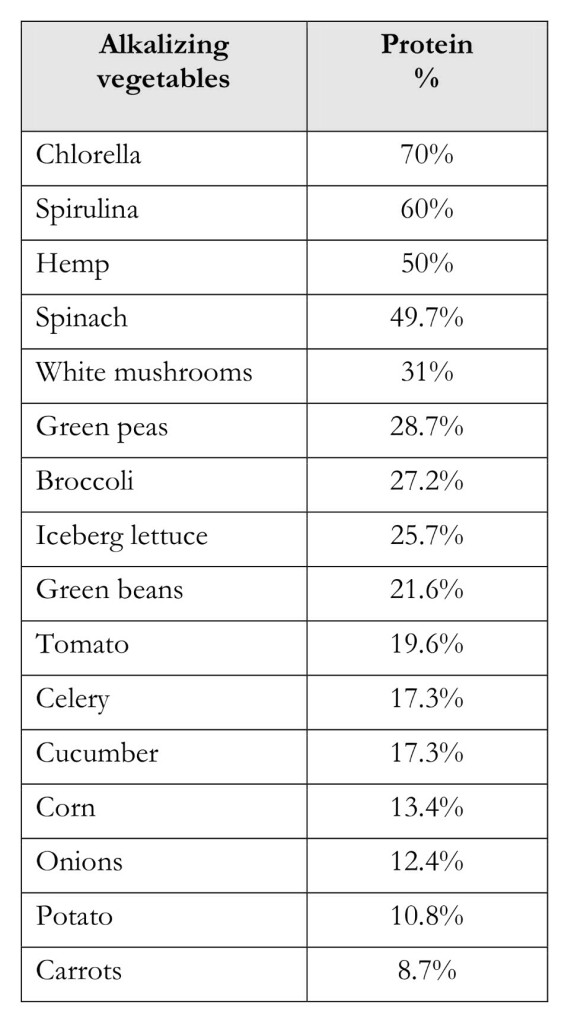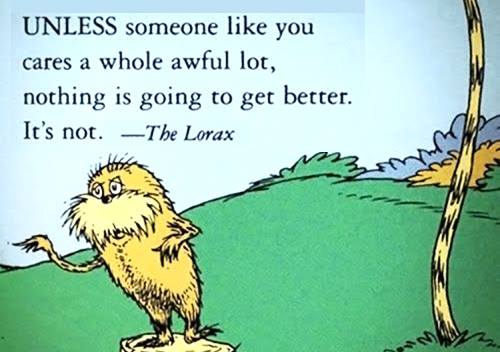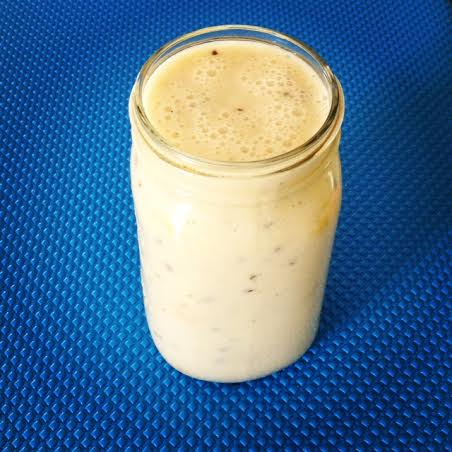What is the best protein for athletic performance is a question I get A LOT. And how much?
In my bodybuilding career (which is now 15 years ago… I have been a tennis player and athlete since then), I was stuffing myself with protein from early morning to late night, regularly eating 250–350 grams a day. When getting ready for a competition and cutting the carbohydrates dramatically (yes, we used to believe that carbohydrates made you fat), I had to eat even more protein to get my calories from something other than fat.
Then eventually, when I started to play tennis and started to change my lifestyle, I started to eat smaller amounts of protein and I was immediately feeling better and lighter.
Protein for Athletic Performance
I did lose some body weight when I started to play tennis, but it was partially because I was running on the court for hours every day. It is hard on the body to be heavy while running around on the concrete, when you need to be quick, agile, and explosive with the endurance to do this for hours. My weight dropped 20 pounds and adjusted at 160 pounds, where it has stayed ever since. With body fat levels at 11–15%, this is a fine result for an almost half-centurion plant-eating woman. This result is convincing enough that plant-based nutrition is sufficient, healthy, and great for maximum performance.

How much protein?
So what is the truth about protein? How much protein do we really need? From my personal experience, while trying all possible protein amounts, I need to say that plant-based nutrition delivers enough: enough of the quantity, enough of the quality. Yet another great result of the simplicity of the whole foods plant-based diet is that you get enough for your health and performance and not too much to get sick and slow. Personally, I eat about 80–140 grams per day, which is about 10–15% of total calories. These are great numbers. You don’t want to eat much more, as you will discover below.
For the last two centuries, the protein recommendations have been swaying from one extreme of super high protein diets to another extreme of very low protein. The debate is still going on, even as there is more evidence that high protein is harmful to your health. The high protein proponents (and I used to be one of them) may make the body look beautiful from the outside, chiseled and lean, but it is not looking or feeling good deep inside.
Studies are confirming that adequate protein intakes from plant-based nutrition are the healthiest for your body and its longevity and vitality. Improved performance is what you get as the cherry on top of your cream. Oops, there is no cream in your plant-based diet.
Is plant protein as good as animal protein and dairy? When I tell people that I am plant powered, they look at me in disbelief at first. I look too strong and meaty and don’t fit their image of a typical vegan. They think of vegans as scrawny, sickly, non-radiant skinny people. But here I am, all tanned, strong, and powerful. What is wrong with that picture? When nothing is wrong, they tell me that they just love meat too much. They cannot imagine their life without meat.
Animal protein
When I suggest that meat doesn’t really taste so good, they start fighting me. Have you ever tried to eat your meat plain, without any spices, salt, sugar, fat, sauces, and other additives? It is actually really bland and boring. It is not the meat that tastes so great, but all the combination of spices that you marinate it in before preparation. If the spices do the job, why can’t you use them for your plants and make them taste completely as yummy? Just don’t say that the meat is delicious.
Meat, poultry, fish, and dairy all contain a lot of protein, fat, cholesterol, and dietary acids, while they almost never provide any healthy fiber. When we eat more than our body can metabolize, neutralize, or exert, the excess will convert into substances which are toxic to our bodies, and their effect is cumulative over time. The acid weakens the bones and the fat and cholesterol clogs the arteries. The elimination process of excess protein overloads the liver and kidneys.
There is a link between animal products and our modern chronic diseases such as cancer, heart disease, diabetes, and many other problems. It doesn’t matter if the animal product is processed or cleanly produced by a local farmer. The amounts that we typically consume in our modern western society will slowly create disease in the body.
Unfortunately, the misconceptions about our protein needs are enormous. Protein is one of the most provocative and the least understood food topics. The meat and dairy industry have a strong political and financial power, influencing the norms and guidelines of dietary needs. They scare people with the dangers of not drinking enough milk for your bones or not eating enough quality protein, which you only get from animals, as they recommend. People fear getting sick from too little protein, while they are not noticing that they are getting sick from too much protein. I challenge you to think of one person that has died from a lack of protein, while many lives have vanished due to diseases from excess protein.
Dr. T. Colin Campbell suggests that there is a strong correlation between dietary protein intake and cancer of the breast, prostate, pancreas, and colon. The higher the protein intake, the higher rates of cancer there are. In his research, when they lowered protein intake to 5% of total calories, the cancer rates went down, not so mysteriously. When they raised the protein intake again, the cancer rates went up. In addition to cancer, excessive protein intake causes constipation and other digestive disorders, autoimmune disorders, arthritis, osteoporosis, premature aging, impaired liver function, kidney failure, and heart disease.
Too much protein puts extreme physiological stress on the body so that its healing process is disrupted, which creates ideal conditions for chronic diseases. It is nearly impossible to find adults who don’t have any of the chronic conditions. A completely healthy adult person is more a phenomenon than normality.
There are several studies, current and past, which confirm that a daily intake of 5–10% of calories from protein is optimal. The 5% intake is sufficient, so you have room to play with if you consume 5–10%. The average American eats 15–16% of calories from protein, and on many occasions even more, up to 20–30%, as is often seen in strength athletes, people who want to lose weight by eliminating carbohydrates, and many other populations who fear not getting enough protein.
How does excess protein create disease?
One explanation is that the excess protein clogs the basement membranes in the cells, which perform the necessary job of filtering the oxygen and nutrients into the cells, and the waste products out of the cells. When the basement membranes are clogged, the good stuff (nutrients and oxygen) cannot get in and the bad stuff (waste products) stays trapped inside the cells, which causes low oxygen levels and malnutrition in the cells, decreasing the pH of the bodily fluids to levels low enough to cause illness. Animal protein is mostly acidic, while the body wants to be slightly alkaline.
When you eat too many acidic foods, the body immediately works on neutralizing the acids to create its balance again, by leaching alkalizing minerals such as calcium from the bones and teeth. Excess protein cannot be stored in the body so the kidneys will work on eliminating it. It puts extra strain on the kidneys, which over time can cause diminished function or kidney disease. Luckily, this is reversible, so converting to low fat, low protein plant-based nutrition will help your kidneys to restore their power.
There is a difference between animal and plant-based protein. While there is a misconception that animal protein is superior to plant protein, it is not as correct as the meat and dairy industries claim. It is true that animal proteins have the most similar amino acid profile (the building blocks of protein) to the human protein and therefore are highly efficient when used for synthesizing the human protein.
However, this does not mean that animal protein is best for us—the opposite is true.
Just like pushing the gas pedal to the floor, accelerating the synthesis makes many other functions accelerate as well, causing premature aging, heart disease, diabetes, osteoporosis, and cancer. In the race of life, the secret is going slow.
Plant protein
The plant proteins (inappropriately named the “low-quality” by a mistake that has been later admitted, but this misconception is now too well spread) allow for slow and steady synthesis of new proteins, which is much healthier for us. They are incorrectly labeled as low quality because they don’t come as a “complete” package in terms of matching our protein make-up as a group.
Nevertheless, they contain all of the proteins that we need to thrive and be healthy. By eating a variety of plants, we receive all the amino acids needed to feel great, while minimizing the risks related to eating animal proteins. The plant proteins do what the animal protein does, but with greater effects, especially when talking about athletic performance and muscle building.

Many high-performance athletes are plant powered: Dave Scott, the six-time winner of the Ironman triathlete; Carl Lewis, the seven- time gold medalist Olympian sprinter; Rich Roll, the multiple Ultraman champion and one of the fittest men in the world at age 45; Martina Navratilova, Serena and Venus Williams, 75-year old bodybuilder Jim Morris, strength athlete Mike Mahler, bodybuilder Robert Cheeke, Mixed Martial Arts champion Mac Danzing, ultra-endurance athletes Brendan Brazier and Scott Jurek, and many more. The list of these plant-powered amazing athletes is too long to be listed here. They train, compete, and thrive on plant-based diet with impressive results and health.
Our nation’s health is at its lowest, while the consumption of animal products is at its highest. People start searching for different ways, and many find the answer in plant-based nutrition. They heal their chronic disease, slow down or reverse aging, improve performance, and achieve tremendous health overall. I have personally witnessed many of my clients and fellow tennis players, who followed my path into the world of plants improving their health, losing weight to optimal levels, reducing and eventually eliminating their medications, and performing at their best. Even the most hard-headed meat lovers admitted humbly that there is something unique about plant-based nutrition.
If you would like to learn more how to transition to a plant-based diet and become a superior athlete at the same time, my book “The Athlete’s Simple Guide to a Plant-Based Lifestyle: How to easily improve your health, performance, and longevity. Works for non-athletes, too!” will guide your through the process, which is surprisingly simple.
.




